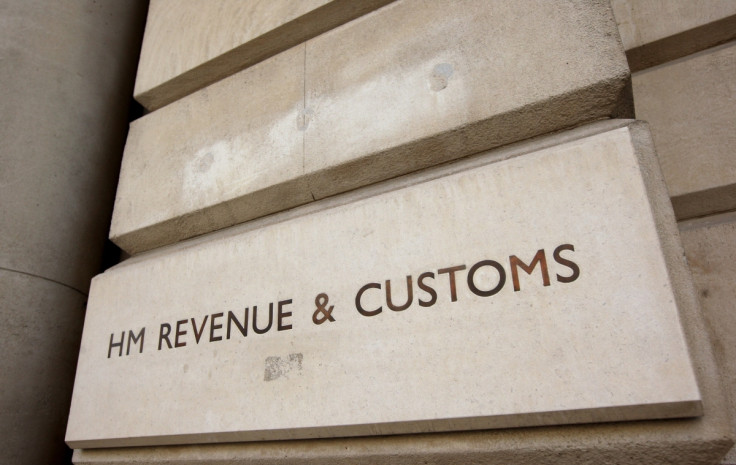Is HMRC the worst department in Whitehall?

HM Revenue & Customs (HMRC) has been dogged by criticism and scandal in the past, from poor customer service for everyday taxpayers to turning a blind eye to corporate tax evasion.
Now parliament's Public Accounts Committee (PAC) has poured another bucket of manure over the tax office's head.
Woefully inadequate, still failing and of serious concern – that is the PAC's verdict in a damning new report on HMRC. PAC chair Meg Hillier said that the public purse was missing out and taxpayers expected and deserved better.
The report comes in the wake of the HSBC tax evasion scandal, the "sweetheart deals" that let the likes of Goldman Sachs off billions in owed tax, criticism that department had an "unhealthily cosy" relationship with accounting giants, and myriad other issues surrounding the tax office.
The PAC accused HMRC of trying to dodge accountability over the nature and value of its tax reliefs, which it said were invisible to Parliament because the department refused to define them or list them comprehensively.
It also said HMRC was still failing on its "abysmal" customer service because in the first half of 2015 it had only answered half of all telephone calls made to it – and it refused to set tougher targets for its staff.
The PAC report said HMRC did not expose the real "tax gap" – the difference between what could be collected and what was actually collected – because it did not include aggressive tax avoidance deemed legal by the courts even when it was contrary to the spirit of the law.
Yet HMRC itself defines tax avoidance as "exploiting the tax rules to gain a tax advantage that parliament never intended".
But perhaps most damningly in the report, HMRC's record on criminal prosecutions of offshore tax evasion was woefully inadequate because its investigations did not lead to enough prosecutions.
And the PAC said it needed to be more willing to pursue prosecutions in the first place.
In its defence, a HMRC spokesperson told Money Observer that the department knew it had not provided a consistent level of customer service but that 3,000 new staff had been recruited to improve things.
"We are disappointed that the Public Accounts Committee has overlooked HMRC's record results, which include collecting a record £517bn in tax revenues and further reducing the UK's tax gap [...] to ensure it remains one of the lowest in the world," the spokesperson said.
HMRC came under fire in early 2015 after it emerged that French authorities told it in 2010 that HSBC had been helping clients to evade tax through offshore accounts in Switzerland. The French were alerted by Hervé Falciani, a whistleblowing former HSBC employee who leaked account data while working in IT for the bank.
Falciani's list included 3,600 potential tax evaders in the UK. But only one has been prosecuted successfully after investigation by HMRC. The tax office defended itself by pointing out that much of Falciani's evidence fell short of the standards required under UK law for a successful prosecution.
In 2013, it emerged that a number of so-called "sweetheart deals" were made between top HMRC officials and tax-dodging corporate giants. One of those was Goldman Sachs, the US investment bank nicknamed the "vampire squid".
Under these deals, big businesses were let off of a portion of their tax bills as long as they paid something. Around £4.5bn was raked in by HMRC, but campaigners asked how much would have come in had HMRC pursued them more aggressively.
And this is another sore point. HMRC has developed a reputation for treating big businesses with kid gloves while hounding smaller firms and freelancers, sometimes for trivial amounts of tax. It has been accused by accountants in the past of using "bully boy tactics" by sending threatening letters to people who have done nothing wrong in a "scattergun" approach.
"[HMRC] pursues tax owed by the smaller businesses but seems to lose its nerve when it comes to mounting prosecutions against multinational corporations," Margaret Hodge said in 2013 when she was chair of the PAC.
HMRC has been wrestling with cost reductions and political pressure to raise more revenue with fewer resources. It was told in 2011 that under the coalition government's austerity programme, it had to find £1.6bn in savings over four years.
That was on top of £1.4bn of cost cutting since 2005. The PCS union, which represents HMRC workers, pointed out that the tax office had lost around 11,000 staff in recent years because of the cuts, making the work of those who remain much harder.
Sometimes, HMRC gets wins as well as criticism. It just successfully won a court case against Rangers football club, which it accused of breaking tax rules by using what are called Employee Benefit Trusts (EBTs) as a complex way for staff and players to avoid tax by through loans. It is a boost to HMRC's fight against other users of EBTs to dodge tax.
And in February 2015, the National Audit Office (NAO) praised HMRC's "good progress towards achieving its primary objectives of maximising revenue and making sustainable cost savings".
"HMRC is among the strongest government departments in terms of managerial competence and its robustness in managing the risks to its essential function of tax collection," said Amyas Morse, head of the NAO.
"It now faces some significant challenges, however, if it is to harness new technology effectively and thereby exploit the data it collects."
"Tax doesn't have to be taxing," was HMRC's marketing slogan for years. Unless, that is, you are a tax collector.
There is clearly trouble at HMRC. For more than a decade, its budget has been squeezed while better results demanded from it. Just how much longer this can carry on, and the tax revenues keep rolling into the Treasury, is unclear.
© Copyright IBTimes 2025. All rights reserved.






















